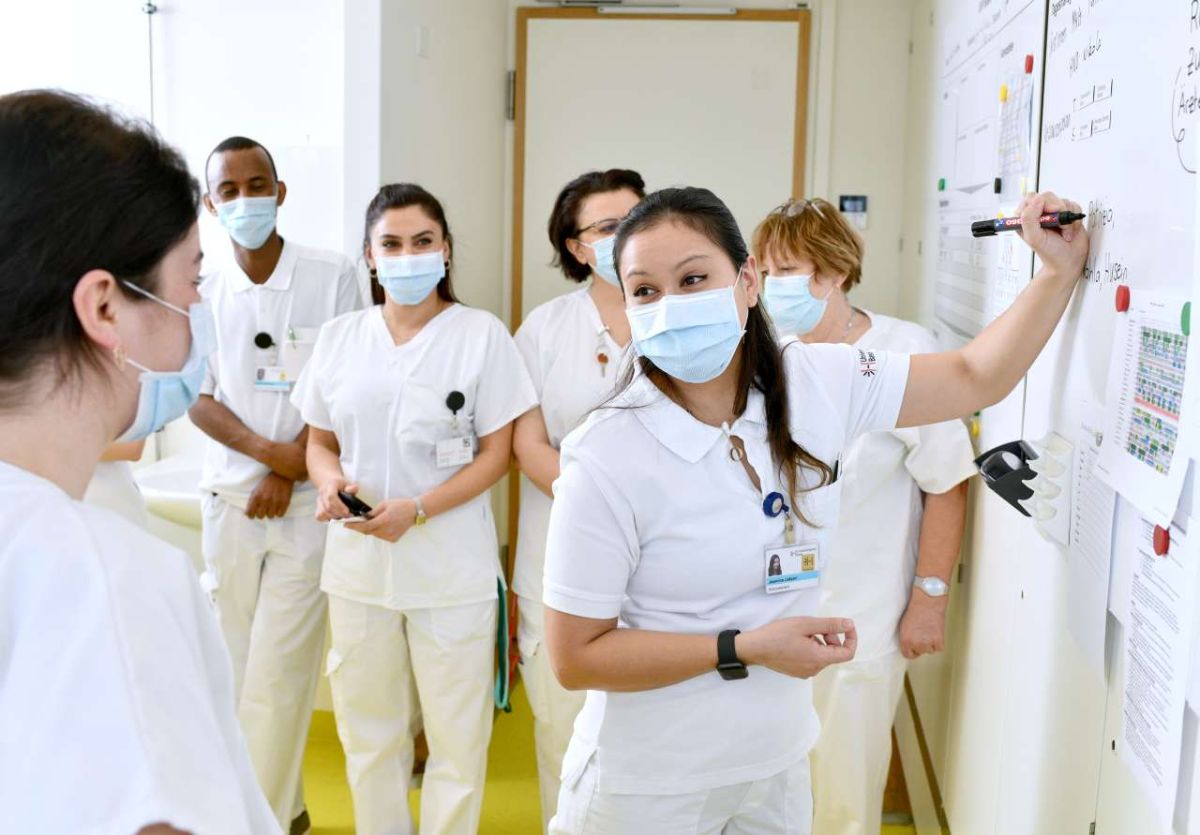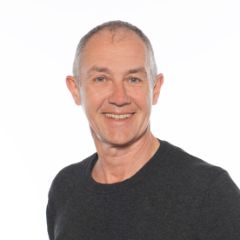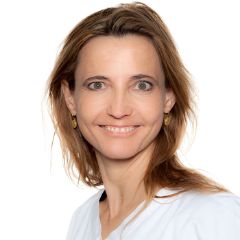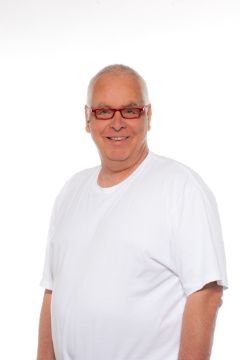
Further training
A large and varied selection of further training courses is available to nursing staff. This allows specialist knowledge to be deepened or expanded, always in line with the latest practical findings.
Postgraduate courses
Qualified nurses HF can complete a two-year postgraduate course (NDS) at the USB in the three disciplines of anaesthesia, intensive care and emergency nursing.
All courses are open to employees of the University Hospital Basel and our partner hospitals.
Important: An employment or training contract with a recognized specialist department is required for all three courses.
Anesthesia care NDS
As a specialist in anaesthesia nursing, you will work in delegation or in collaboration with a specialist in anaesthesiology and perform general anaesthesia on patients. You will use your extended and in-depth nursing, medical, pharmacological and medical technology expertise in all areas of anesthesia.
Further information on working in anesthesiology can be found here.
Important: An employment or training contract from a recognized specialist department is required for all three courses.
Postgraduate studies at the University Hospital Basel are also possible with employment at one of our partner hospitals.

Christoph Schori
Studiengangsleiter NDS – Anästhesiepflege
Departement Akutmedizin
Tel. +41 61 328 64 83
Intensive care NDS
As a graduate of the intensive care course, you will perform your duties in an intensive care unit for adults or children. You will be responsible for the intensive care and support of patients in acutely life-threatening situations. You will work in an interdisciplinary team of specialists from different disciplines. As a qualified expert on this course, you will use the specialist knowledge you have acquired in nursing, medicine and medical technology in all areas of intensive care.
You can find information about working in our intensive care units here.
Important: An employment or training contract with a recognized specialist department is required for all three courses.
Postgraduate studies at the University Hospital Basel are also possible with employment at one of our partner hospitals.

Marie-Noëlle von Allmen
Studiengangsleiterin NDS – Intensivpflege und Überwachungspflege
Departement Akutmedizin
Tel. +41 61 556 54 29
Emergency care NDS
As a qualified expert in emergency care, you will competently triage patients with a wide range of symptoms. You are also responsible for initial nursing and emergency medical measures. This complex task requires specialist knowledge in nursing, medicine and medical technology. As an expert, you must be able to analyze in a differentiated and rapid manner and act and communicate independently. You are active in all areas of emergency care and act in an evidence-based manner.
Important: An employment or training contract from a recognized specialist department is required for all three courses.
Postgraduate studies at the University Hospital Basel are also possible with employment at one of our partner hospitals. Further information on working at the Emergency Center can be found here.

Michael Mühlmeyer
Studiengangsleiter NDS – Notfallpflege
Departement Akutmedizin
Tel. +41 61 328 62 58
Persons with a foreign qualification (specializing in anesthesia, intensive care, emergency care)
People with a foreign degree in nursing have the opportunity to be accepted onto the postgraduate HF courses in anaesthesia, intensive care or emergency nursing at the USB. This gives them the opportunity to acquire the Swiss title "Dipl. Expert NDS HF Anesthesia, Intensive Care or Emergency Nursing". Competencies already acquired will be credited if appropriate proof is provided ("Sur Dossier")
General information
Target audience and requirements
Target audience
- Certified nurses HF
- Persons with a Bachelor of Science in Nursing HF
- Persons with a foreign nursing diploma recognized by the SRC
Prerequisites
- Professional experience of at least 6 months in the acute care sector
- Employment or training contract with a recognized specialist department
- Confident PC user skills (Office, Internet and e-mail)
- For foreign language students: Language level C1
Career opportunities
Various opportunities in the fields of nursing, management and education.
Duration/costs
Duration:
- At least 2 years (with 80-100% employment), part-time
- 51 theory days
Costs:
For external students: CHF 10,000 plus CHF 600 examination fee
For internal students: CHF 600 examination fee
Contact us

"The university hospital welcomes our further training, and we feel that."
Claudia Bitterlin, Head of Surgical Nursing
Monitoring care
The postgraduate certificate course in monitoring care (formerly IMC) is a tertiary-level in-service training course and includes a theoretical and a practical training component as well as a certification procedure.
Admission/target groups
The following are admitted to further training in monitoring nursing
- Persons who have a degree as a qualified nurse HF or Bachelor of Science in Nursing FH.
- Persons with a foreign diploma in nursing whose foreign diploma is recognized by SERI/SRC.
- Persons who hold a tertiary-level diploma in midwifery HF or Bachelor of Science in Midwifery FH or an equivalent foreign diploma.
In order to obtain the certificate in monitoring care, professional activity in one of the following recognized monitoring units is required during the theoretical training or in the following five years from the start of the theoretical training:
- Intermediate Care Unit
- neurological monitoring unit (stroke unit)
- cardiology monitoring unit (coronary care unit)
- Pediatric monitoring unit
- Neonatal monitoring ward
- recovery room
- intensive care unit
If the admission requirements are not met or no certificate is sought, it is also possible to register for individual modules as a "guest" (see guest registration form under registration). The course costs CHF 200 per day attended.
Training (theory & practice)
The theoretical training includes classroom instruction, transfer days and self-study. The theory program comprises 160 learning hours and is divided into five modules:
- Fundamentals of Respiration, Cardiovascular, Renal, Neuroanatomy and Infusion Therapy
- Evidence-based care/clinical assessment
- Focus on respiration
- Focus on the cardiovascular system
- Focus on the nervous system and pain management
If there is free capacity, interested parties can attend individual or all modules, even if they are not working on a recognized monitoring ward. These participants will receive a module certificate.
The practical training takes place at a practice location recognized by the training provider, University Hospital Basel. This location implements the minimum requirements of OdASanté and the minimum requirements of the training provider. The practice learning location ensures that all competencies of the functional profile can be acquired at the practice location. If this is not fully possible, the student must complete an additional internship on a suitable monitoring ward.
The practical training comprises at least 40 full-time hours of supervised clinical learning. It is supervised by a nurse with a postgraduate certificate in monitoring nursing or by an expert in anesthesia, intensive care or emergency nursing.
Course dates
The training takes place on a part-time basis. With a 100% level of employment, the training lasts at least seven months until the certification procedure is completed.
The training provider, University Hospital Basel, starts the theory program in January, May and November.
Course dates: Course dates 2025
Course dates for cardiology guests: Course dates 2025
Registration & Contact
Registration for further training in monitoring care
If the admission requirements are not met or no certificate is sought, it is also possible to register for individual modules as a "guest".
Contact the
School secretariat NDK Surveillance Nursing
Tel +41 61 265 27 20
careArt specialist congress
Every year we organize the largest care symposium in Switzerland - careArt. Here you can attend care-related workshops and lectures, discuss with experts from all over the world and keep up to date with the latest findings from research and practice. You can find more information on the careArt website.
